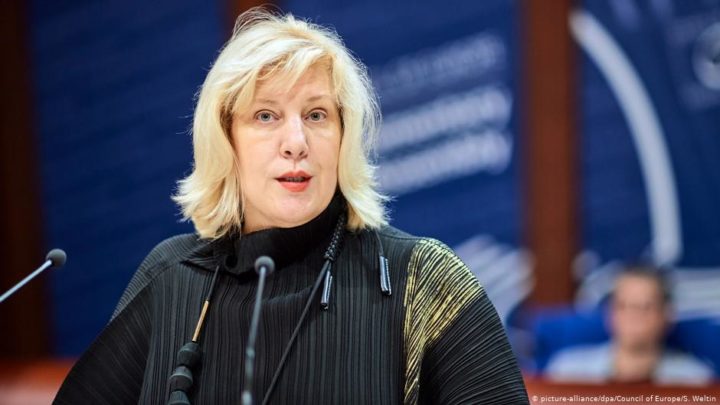Protecting the truth from deniers and serving justice for victims of the Srebrenica genocide is our best bet to prevent genocides from occurring again, writes Council of Europe Human Rights Commissioner Dunja Mijatovic.
That genocide was perpetrated in and around the Bosnian city of Srebrenica 25 years ago is incontestable. Several judgments of international courts have made it crystal clear. Yet, many politicians continue to deny this truth, thus deepening the suffering of the survivors and endangering peace.
The genocide of Srebrenica took the lives of more than 8,000 human beings, mostly Bosniak men and boys, and displaced 30,000 people. It was perpetrated by the Army of the Republika Srpska under the command of a now-convicted war criminal — and with the complicity of a passive international community.
Instead of recognizing it as one of the vilest chapters of Europe’s contemporary history and working towards reconciliation, many prominent politicians and public figures in Bosnia and Herzegovina and in Serbia are fanning the flames of nationalism and willfully sowing the seeds of hate. This is a dangerous situation.
Some war criminals hold prominent public roles
Genocide denial weakens society’s ability to detect the reemergence of discourse and acts that may lead to new atrocities.










